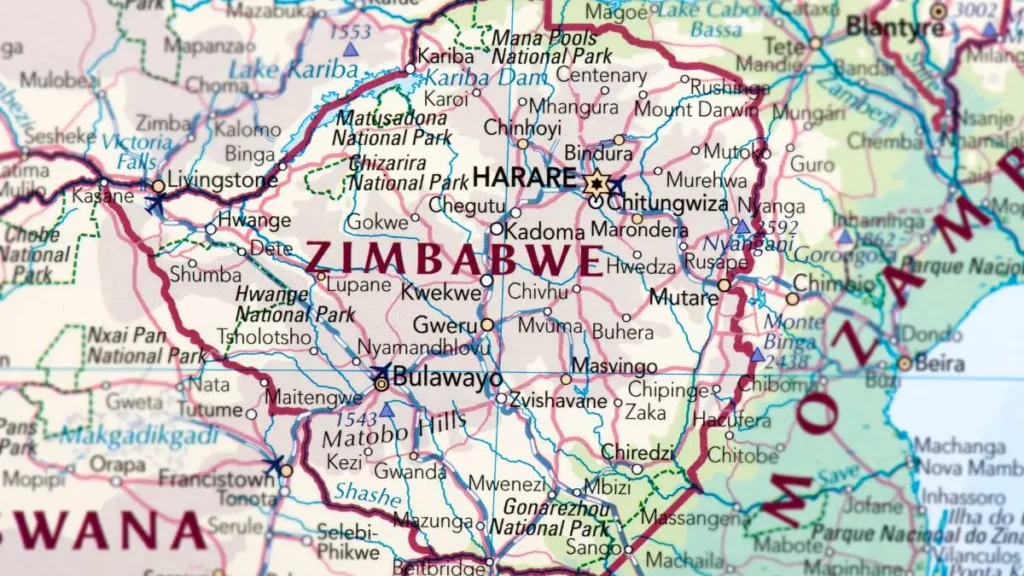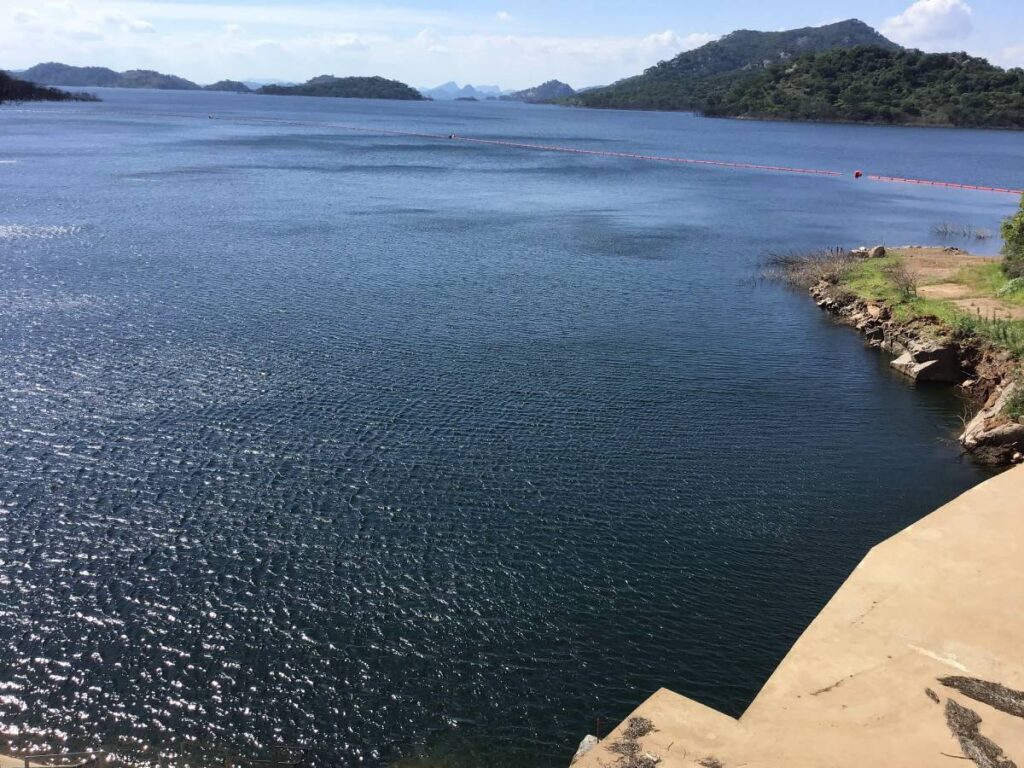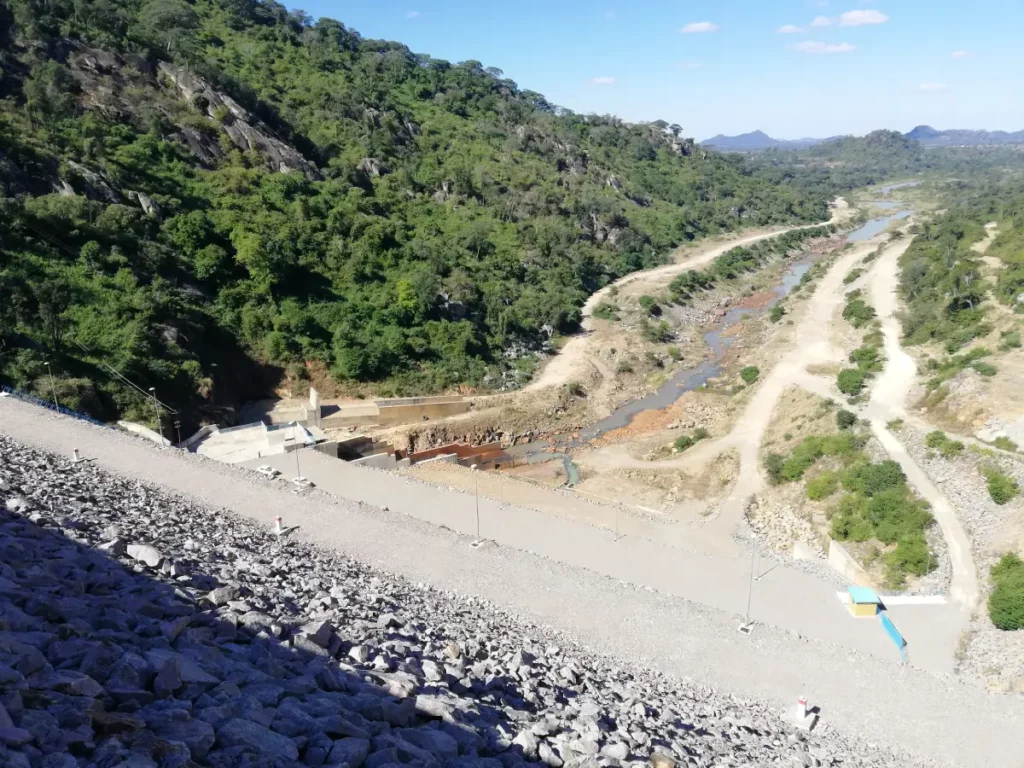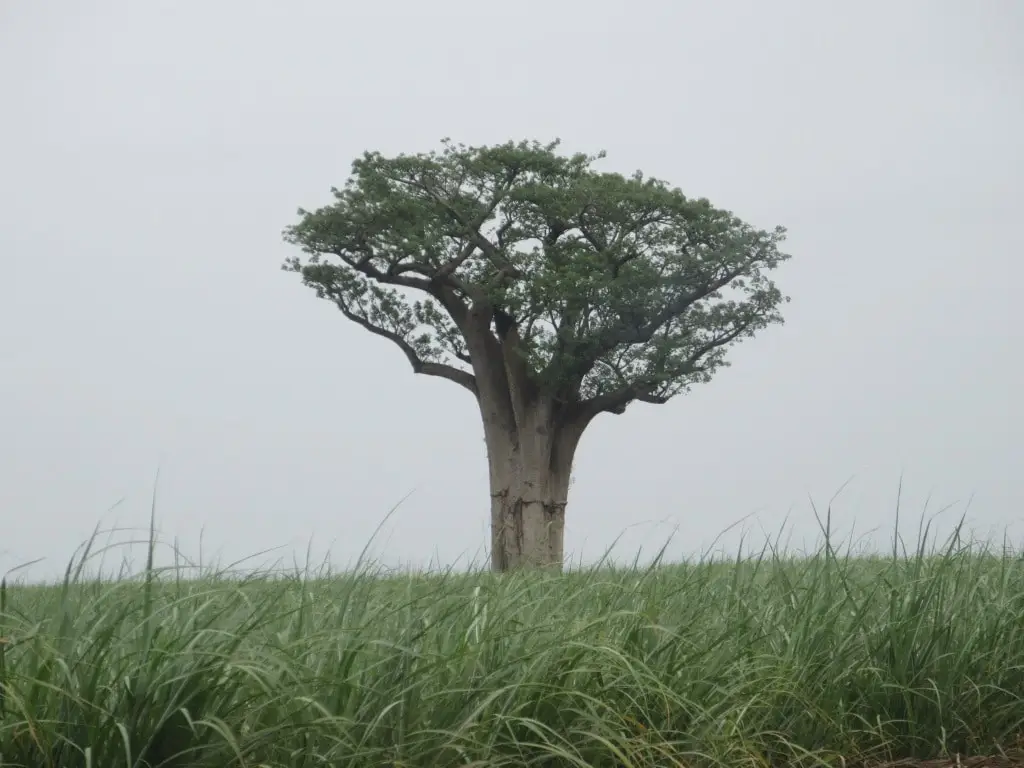
Zimbabwe, a country often in the spotlight for its rich history and diverse landscapes, is now being recognized for its potential as a significant growth hub within Southern Africa. In a recent analysis by Michael Walsh and Charles A. Ray, published by the Foreign Policy Research Institute (FPRI), the country’s evolving role in regional development is insightfully discussed.
Understanding Zimbabwe’s Strategic Position
Zimbabwe’s potential as a growth hub in Southern Africa can be attributed to its wealth of specific natural resources and industries with immense potential. The country is reported to possess significant reserves of 17 Rare Earth Elements (REEs), including cerium, dysprosium, erbium, and neodymium, among others. These elements are crucial in various high-tech sectors, including the manufacturing of electronic equipment, automobiles, and military technology.
Beyond REEs, Zimbabwe is also rich in other valuable minerals like lithium, gold, and platinum. These resources position the country as a key player in global markets, especially in sectors driving modern technology and sustainable energy solutions.
Moreover, Zimbabwe’s fertile land makes it a potential powerhouse in agriculture, capable of not only feeding its population but also contributing significantly to regional food security. Additionally, the country’s diverse and abundant wildlife creates opportunities for a thriving tourism industry, focusing on eco-tourism and wildlife conservation.
Zimbabwe’s Lithium Projects: A Catalyst for Economic Growth
The Arcadia Lithium Project, Zimbabwe
At the forefront of Zimbabwe’s lithium projects is the Arcadia open-pit Lithium Project, located just 38 kilometers east of Harare. This project is recognized as one of the world’s largest hard rock lithium resources. Owned by Zhejian Huayou Cobalt, a prominent mining company, Arcadia boasts measured lithium reserves of 42.3 million tons.
The Chinese group’s investment plan of approximately $300 million into this project is a significant economic booster. The goal is to develop a lithium mine and reprocessing plant with the capacity to produce 4.5 million tons of ore and 50,000 tons of lithium carbonate equivalent annually. This ambitious project positions Zimbabwe as a key player in the global lithium market, catering to the growing demand in technology and sustainable energy sectors.
Bikita Minerals, Zimbabwe
The Bikita mine, nestled in the southern part of Zimbabwe in Masvingo Province, is another jewel in the country’s lithium crown. It stands as the largest lithium mine in Zimbabwe and holds the world’s largest-known lithium deposit, estimated at approximately 11 million metric tons.
Boasting 10.8 million metric tons of lithium ore with a grade of 1.4%, this translates to 0.15 million metric tons of lithium. The mine has been a significant source of various lithium minerals, including spodumene. In 2022, the Sinomine Resource Group acquired the mine for $200 million, highlighting its strategic value and potential for further development.
Zulu Lithium and Tantalum Project, Zimbabwe
The Zulu lithium and tantalum project, Zimbabwe’s largest undeveloped lithium-bearing site, is set to make a substantial impact. Spanning over 3.5 km² with 14 mineral claims, the project, owned by Premier African Minerals, promises significant prospects for lithium and tantalum mineralization.
With an inferred lithium carbonate equivalent resource of 526,000 tons grading 1.06% Li2O, the project is gearing up for major development. A proposed $35 million investment by Suzhou TA&A Ultra Clean Technology is slated to establish a 50,000-ton per-year pilot plant, underlining the project’s ambitious scale and potential contributions to Zimbabwe’s economic growth.

The development of these lithium projects in Zimbabwe not only marks a significant stride in the nation’s mining sector but also positions the country as a pivotal hub for lithium production in Southern Africa. The investments and advancements in this sector are set to propel Zimbabwe into a new era of economic growth and regional significance. With lithium’s increasing importance in the global market, Zimbabwe’s role as a key supplier can’t be overstated, offering a promising future for its economy and for the broader region.
Challenges and Opportunities
- Infrastructure Deficiencies:
- Counterpoint & Opportunity: While the current state of infrastructure presents a significant hurdle, it also offers a vast field for investment and development. Initiatives focusing on green energy and sustainable urban planning could not only address these deficiencies but also position Zimbabwe as a leader in innovative infrastructure development in Africa.
- Economic and Monetary Issues:
- Counterpoint & Opportunity: The economic volatility, though daunting, paves the way for Zimbabwe to explore alternative financing models. Embracing digital currencies, for instance, could mitigate currency instability, and tapping into diaspora investments could alleviate the debt burden.
- Governance and Institutional Weaknesses:
- Counterpoint & Opportunity: Tackling corruption and bureaucratic inefficiency requires robust institutional reforms. However, this also presents an opportunity to build a more transparent and efficient governance system, potentially increasing investor confidence and public trust.
- Geopolitical and Historical Complexities:
- Counterpoint & Opportunity: Zimbabwe’s history and regional dynamics indeed pose challenges. Yet, these also offer a unique position for the nation to become a mediator and stabilizer in the region, leveraging its experiences for diplomatic and economic advantage.
- Social and Inequality Issues:
- Counterpoint & Opportunity: The social challenges, including poverty and inequality, underscore the need for inclusive growth strategies. Focusing on grassroots economic initiatives and equitable wealth distribution can drive a more holistic and sustainable economic growth.
Zimbabwe’s Role in Regional Stability
Zimbabwe’s stability is not just a national concern but a regional imperative. Its role in fostering regional cooperation, coupled with efforts to stabilize its economy, directly impacts the dynamics of Southern Africa. The insights from Walsh and Ray’s analysis emphasize the need for a concerted effort to support Zimbabwe in its path to recovery and growth. This, in turn, will contribute to a more prosperous, stable, and cooperative Southern African region.
Fostering Regional Cooperation
Zimbabwe’s collaboration with neighboring countries is pivotal for regional development. Engaging in joint infrastructure projects, establishing mutually beneficial trade agreements, and participating in shared security initiatives are essential steps towards a more unified and resilient Southern Africa. These collaborative efforts not only enhance economic growth but also strengthen diplomatic ties and regional security.
Impact on Economic Migration
A significant aspect of Zimbabwe’s regional stability is its influence on migration patterns. Currently, many Zimbabweans are economic migrants in countries like South Africa, Mozambique, and Botswana. By improving its economic stability, Zimbabwe can offer better opportunities to its citizens, potentially reducing the outflow of migrants seeking better prospects abroad. This not only alleviates the social and economic pressures on its neighbors but also ensures that the talent and workforce contribute back to the local economy.
Preventing the Influx of Migrants
Having a stable Zimbabwe plays a crucial role in maintaining regional equilibrium. By curbing the necessity for its citizens to migrate, Zimbabwe can help prevent the challenges that come with high influxes of economic migrants in neighboring countries. These challenges often include strained resources, increased competition for jobs, and complex socio-economic dynamics. A thriving Zimbabwean economy means a reduction in the push factors that drive its citizens to seek livelihoods in other Southern African countries.
Conclusion: A Vision for the Future – Embracing Zimbabwe’s Regional Role
As we absorb the insights from Michael Walsh and Charles A. Ray’s analysis, it’s clear that Zimbabwe’s trajectory towards becoming a pivotal growth hub in Southern Africa holds more than just economic significance. It’s a journey that could redefine the region’s future.
Zimbabwe’s success is not just its own. It’s a beacon of hope and a testament to the potential of African nations when supported by the right blend of internal governance and international cooperation. The nation’s progress can catalyze a wave of prosperity across Southern Africa, boosting trade, enhancing political stability, and uplifting communities across borders.
The role of international cooperation cannot be overstated. Global partnerships, foreign investments, and diplomatic support are not just aids; they are necessities that can accelerate Zimbabwe’s growth and, in turn, strengthen the region’s stability and prosperity.
Actions for Stakeholders:
- For Governments and International Bodies: Engagement with Zimbabwe should be constructive and forward-thinking, focusing on building long-term economic partnerships and supporting infrastructure development.
- For Investors and Businesses: Explore opportunities in Zimbabwe’s key sectors like agriculture, mining, and technology. Responsible investments can drive sustainable growth and yield mutual benefits.
- For Regional Partners: Collaborative initiatives in trade, technology exchange, and educational programs can leverage Zimbabwe’s strategic position to enhance regional connectivity and economic resilience.
- For NGOs and Civil Society: Support in education, healthcare, and community development is vital. Empowering local communities through sustainable practices will lay the foundation for inclusive growth.
In conclusion, Zimbabwe’s path to becoming a growth hub is more than an economic story; it’s a narrative of regional empowerment and collective progress. By recognizing and supporting Zimbabwe’s potential, we’re not just investing in a country; we’re nurturing a vision for a more prosperous and integrated Southern Africa.
For a deeper understanding of this topic, I highly recommend reading the full analysis by Walsh and Ray: Zimbabwe as a Growth Hub for Southern Africa.




It’s imperative for Zimbabweans to unite and work collectively towards the country’s progress. Zimbabwe has the potential to thrive once again, but this requires introspection and accountability from our political leaders. How can officials, be they councillors, governors, MPs, or ministers, rest easy knowing the wealth of natural resources at our disposal while our citizens continue to face severe poverty? True solutions to poverty can’t be found in isolation; they require engaging in meaningful dialogue with those who are directly affected. We’re facing a critical situation that demands urgent and sincere action
Harare once celebrated as the fourth-best city in Africa, now stands as a shadow of its former glory, marred by poverty and neglect.
Rewind 30 years, and I recall strolling these streets as a young college student, surrounded by the city’s pristine cleanliness and vibrancy. Back then, the streets were bustling with people engaged in their work, contributing to the city’s thriving pulse.
However, the descent into its current state can be traced back to a series of unfortunate events: rampant looting of public funds, ill-advised economic policies, and political upheaval that shattered its foundation.
Zimbabwe’s journey through economic turmoil has been marked by hyperinflation, political instability, and mismanagement, leading to a steep decline in both economic productivity and investor confidence.
The combination of financial misappropriation, poorly conceived economic strategies, exploitation of natural resources, and political instability has deeply scarred Zimbabwe’s economic landscape.
The country’s struggle for international support stems from persistent issues like governance failures, human rights abuses, electoral fraud, corruption, a compromised judiciary, and more. These factors have led to international financial entities being cautious about providing support.
International institutions have called for Zimbabwe to demonstrate a real commitment to reforms and stability as prerequisites for meaningful international assistance. However, the ZANU-PF regime in Harare has often responded with empty promises, further alienating Zimbabwe from the global financial system.
ZANUPF’s reliance on the oft-cited excuse of sanctions to justify its failures ignores the deeper issues at play and capitalizes on the lack of awareness among some citizens.
A critical turning point in this downward spiral was Zimbabwe’s involvement in the Second Congo War from 1998 to 2003. This conflict had significant economic repercussions, draining the nation’s resources through military commitments to the Democratic Republic of the Congo and masking the true cost of the war through deceit and financial manipulation.
While there are voices in Zimbabwe expressing concerns about our current challenges, there’s also a growing sentiment that sees Zimbabwe as a potential beacon of growth in Southern Africa, akin to Kenya’s role in East Africa. This optimistic perspective views our nation not just in terms of its present difficulties, but as a land brimming with potential for substantial economic and social development.
Recently, the US Embassy in Harare recognized Zimbabwe’s potential for significant progress post-sanctions. This observation opens up a conversation about the future possibilities and the pathway towards greater economic and social development in the country.
Indeed, @VisionaryZimWatcher, you bring up a critical point. Zimbabwe finds itself at a geopolitical crossroads, with China’s influence deeply entrenched and the US looking to establish a stronger foothold in the region. The evolving dynamics in South Africa’s foreign relations only add to this complexity. What Zimbabwe needs now more than ever is a leadership that’s not just politically savvy, but also astute in navigating the global economic landscape. Leaders who can balance these international relationships while prioritizing Zimbabwe’s independence and growth are essential for our future.